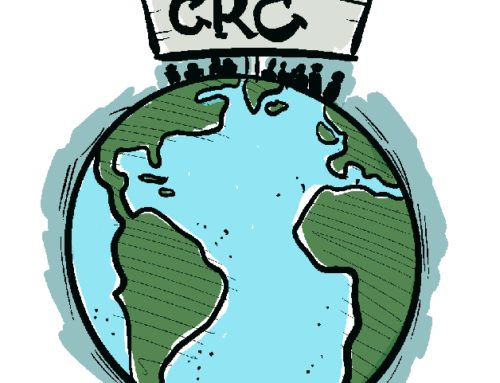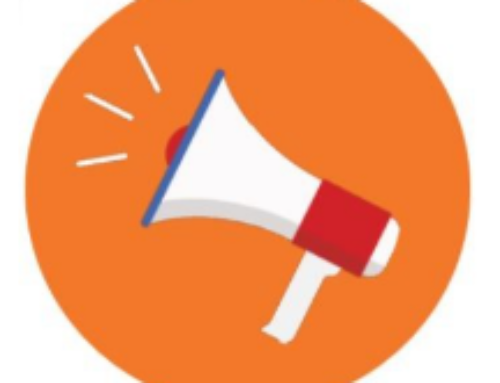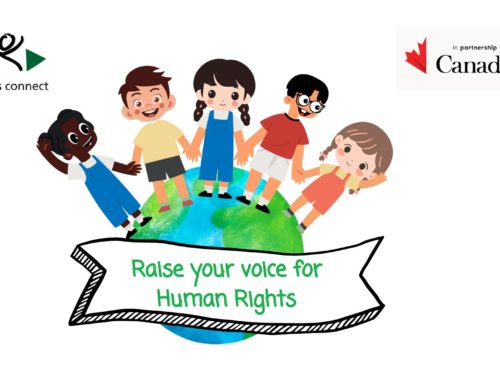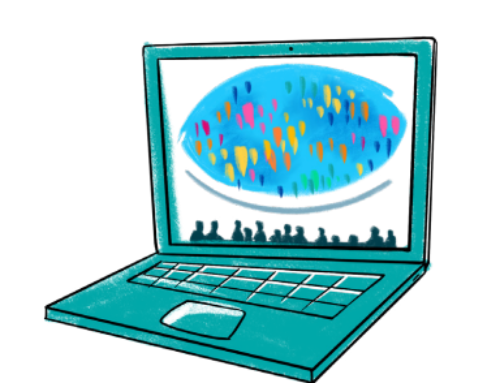The 2023 HRC Annual Day on the Rights of the Child had the highest number of child participants in the history of this event ensuring that discussions on the digital world include children’s views and experiences.
On 10 March, this year’s Annual Day of the Rights of the Child at the Human Rights Council took place with a focus on the digital environment. Children, including Mariana (12 years old from Colombia), Nidhi (14 years old from India) and Kidus (17 years old from Ethiopia), stood at the centre of the morning dialogue, making up, for the first time in the history of the Human Rights Council, the majority of the panel. It was also the first time a High Commissioner for Human Rights had the chance to have a conversation with children in this format.
Several Member States and civil society organisations also encouraged child participation by allocating their speaking slot to child representatives.
During the morning panel, Mariana, Kidus and Nidhi exchanged with the High Commissioner for Human Rights Mr. Volker Turk on challenges and opportunities for the full exercise of their rights in the digital Environment.
“It is important to us – and it is high time – to reinforce universal access to the internet as a human right, and not just a privilege.” stressed that High Commissioner.
He called on all relevant stakeholders to put the wellbeing of children and their rights at the center of policies while protecting children’s right to be heard through child participation, calling on States to use the UNCRC General comment No. 25 (GC25) which seeks to provide guidance on how to promote, respect, protect and fulfill all children’s rights in the digital environment. Mr. Philip Jaffé, Member of the Committee on the Rights of the Child and Director of the Centre for Children’s Rights Studies at the University of Geneva, called for more child participation and thanked the High Commissioner for collaborating in making the Human Rights Council more inclusive.
The panellists delivered strong statements and drew attention to the issues they face based on their own experience online. Mariana raised concern about the digital divide that is very prevalent in rural areas of countries in development. In Mariana’s mountainous town, herself and many other children do not have access to technology that allow them to learn or to communicate with the rest of the world or access to a nearby public library where they could access internet. To solve this, with a group of friends Mariana created a mobile library that can travel throughout her community.
Kidus reminded the Council that “children around the world suffer from various forms of violence, abuse and exploitation because they are deprived of participation on issues that matter to them”.
His experience in cross-country discussions with children coming from Rwanda, Eswatini, Lesotho, and the DRC emphasize this, as he realized not only that in Africa digital access is limited, but also that serious safety threats putting the wellbeing and rights of children at risk, are increasing because of a lack of preventive mechanisms. Kidus called on all relevant stakeholders to put prevention as the top priority in regulating the digital space before more children fall victim to physical and mental abuse.
Nidhi brought attention to the fact that 1 in every 3 online users worldwide is a child and that 72 million pieces of personal data are collected on every child before their 13th birthday. This consists of a serious violation of children’s right to privacy. Moreover, most digital platforms do not have child-friendly terms of references or information regarding the usage of data.
The panel composition was not the only means through which child participation was promoted. Several Member States such as Ireland, Lithuania, Luxembourg, Romania, the Netherlands, Uruguay, and Slovenia gave their speaking slots to a child representative from their respective countries. Civil society organizations such as Amnesty International,Save the Children and Plataforma por la Infancia also gave their slots to children in Argentina, Indonesia, and Spain respectively.
Abril, a 17 years old activist from Argentina, was the first child to participate at the Annual Day in person as a civil society representative. She called for more significant child participation in the creation of a safer and digital space.
Abril emphasized that “those who create and shape technologies today do not account for the impact they have and will have on our rights in the future.”
In the afternoon panel Nidhi, Mariana and Philip Jaffé were joined by Baroness Beeban Kirdon, founder of 5Rights, together with Konstantinos Karachalios, managing director of the Institute of electrical and electronics standards association and Julie Inman Grant, eSafety Commissioner of Australia. Ms Kirdon reminded the Council that what is illegal offline should also be illegal online. GC 25 provides guidelines for a digital framework that protects children and their rights of which 5Rights has published a child-friendly version. Mr Karachalios called on the industry to also assume responsibility and stop collecting children’s data.
Child Rights Connect delivered a joint NGO statement emphasizing that “meaningful and equal access to safe digital technologies can support children to realize the full range of their civil, political, economic, social, and cultural rights” but that “children are not a homogenous group; their agency, age and maturity, and different needs must be taken into account”. Child Rights Connect called on States to develop and implement comprehensive policies and action plans for children’s rights in the digital environment in line with the UN Convention on the Rights of the Child and GC25 and legislate to ensure business responsibility to respect children´s rights, prevent and remedy abuse of their rights in relation to the digital environment. The statement was based on joint position paper developed by the Child Rights Connect Taskforce on child rights and the digital environment with key priority issues to inform the discussions at the Annual Full-Day Meeting on the Rights of the Child, the upcoming UN General Assembly resolution on the rights of the child on the same theme, and the Global Digital Compact. Check it out here!
The inputs from the Annual Day will help shape the UN General Assembly Resolution on the rights of the child to be adopted this autumn on this matter led by the European Union and the Group of Latin American and Caribbean States.
You can watch the morning session here and the afternoon session here. Find an overview of the panel discussion. Find an overview of the day on our website here.










Leave A Comment